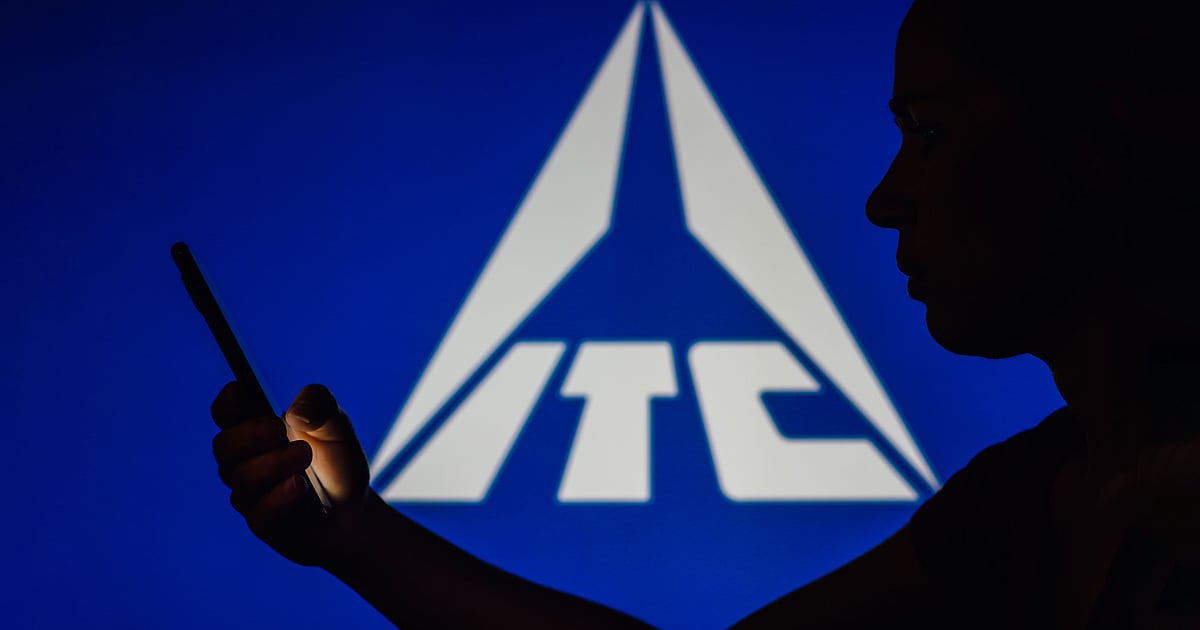Play all audios:
For the quarter ended March 31, ITC reported standalone revenue from operations of ₹18,494 crore, nearly flat from the year-ago period. It also reported a marginal 2% year-on-year rise in
fourth-quarter standalone profit before tax and exceptional items of about ₹6,417 crore.
On a consolidated basis, the net profit was ₹19,562 crore for the fourth quarter of FY25, including an exceptional gain of ₹15,163 crore in the period from the demerger of ITC’s hotels
business into a separate entity—ITC Hotels Ltd (ITCHL)—effective January 1, 2025. After the adjustment of the exceptional gain, the net profit stood at ₹4,662 crore, lower than the ₹5,190
crore reported in the corresponding period last year.
Its revenue from operations grew 10.3% to approximately ₹76,000 crore, whereas profit before tax and exceptional items rose a modest 1.4% from the year-ago period to about ₹26,000 crore. The
company said its EBITDA grew 2.3% year-on-year, excluding the under-pressure Paperboards, Paper and Packaging segment.
The company’s board has recommended a final dividend of ₹7.85 per share. Including the interim dividend of ₹6.50 per share paid in March 2025, the total dividend payout for FY25 amounts to
₹14.35 per share, up from ₹13.75 in FY24.
In the FMCG segment, except cigarettes, ITC registered a full-year revenue growth of 4.8% (6.2% excluding notebooks), despite facing severe input cost inflation. Demand for atta, spices,
frozen snacks, dairy, personal care products, and agarbattis remained strong. Over 100 new products were launched during the year, and the premium portfolio continued to gain traction across
digital and modern trade channels, which now contribute 31% of branded sales.
Key launches included Sunfeast Wowzers, Bingo! Popped Chips, YiPPee Korean Noodles, Fiama Hokkaido Milk Bars, and wellness-led launches under Right Shift. The Mangaldeep brand deepened its
devotional connect through immersive campaigns and introduced its Pranah aromatherapy range.
Cigarettes delivered a 7.1% growth in revenue and a 4.9% rise in PBIT for FY25. Volume-led growth was driven by market-specific strategies, innovation under premium trademarks like Gold
Flake, Indie Mint and Classic Icon, and regulatory stability. ITC welcomed the Union Budget’s move to enable a ‘Track and Trace’ mechanism under the CGST Act to counter illicit trade, which
continues to erode market share.
The agri-business segment saw revenue jump 25% and PBIT grow 18% year-on-year. Growth was driven by exports of leaf tobacco, coffee, spices, and rice. Commercial exports from ITC
IndiVision’s Mysuru facility—India’s first integrated nicotine and derivatives manufacturing unit—also commenced in the fourth quarter, with scale-up expected in FY26.
ITCMAARS, the company’s crop-agnostic phygital platform, now connects over 2.1 million farmers across 11 states, integrating next-gen AgriTech with market access and sustainability.
ITC’s paperboards, paper and packaging business remained under pressure due to low-priced imports from China and Indonesia, a sharp rise in wood costs, and subdued domestic demand. Despite
this, the company maintained leadership in the value-added and sustainable packaging segments. Export-focused growth and innovations like FiloBev Mini, a plastic substitute for small
beverage cups, offered some relief. The company has urged policymakers to consider anti-dumping duties and minimum import pricing to protect domestic manufacturers.
During the year, ITC expanded its FMCG portfolio through acquisitions of Ample Foods (Prasuma, Meatigo), 24 Mantra Organic, and Mother Sparsh. It also signed a business transfer agreement to
acquire Century Pulp and Paper, enhancing scale and geographic advantage in the paper business.

